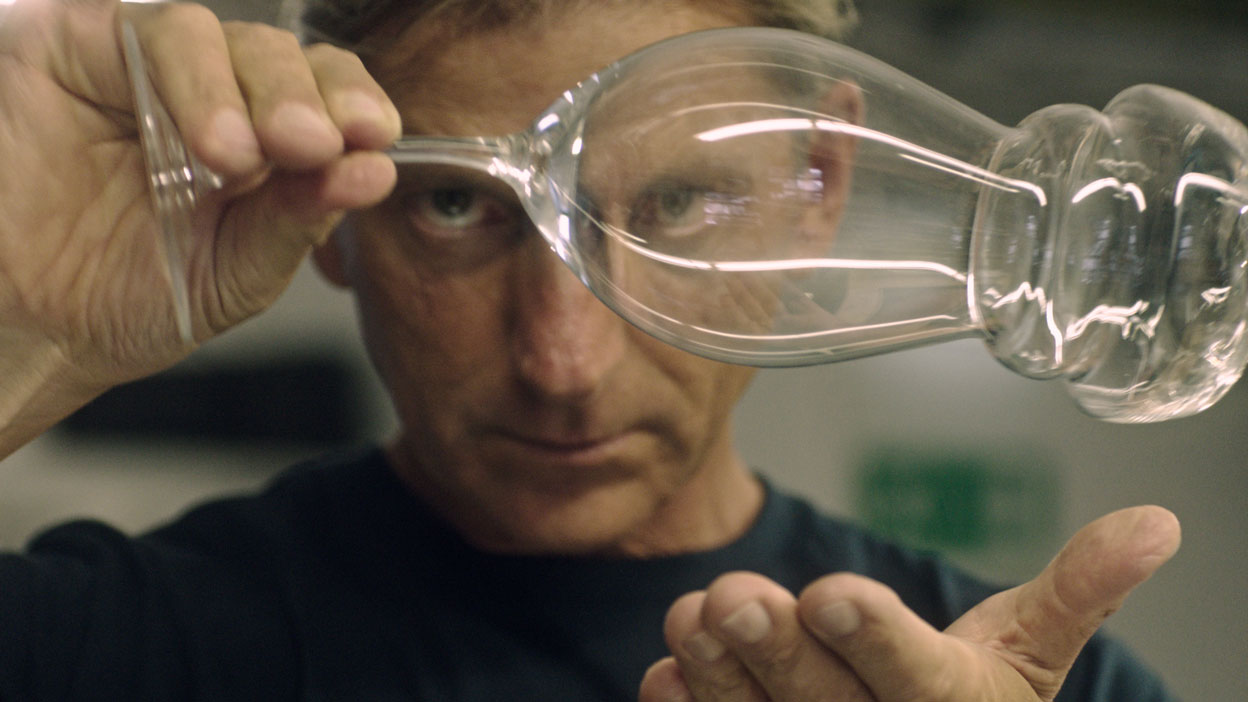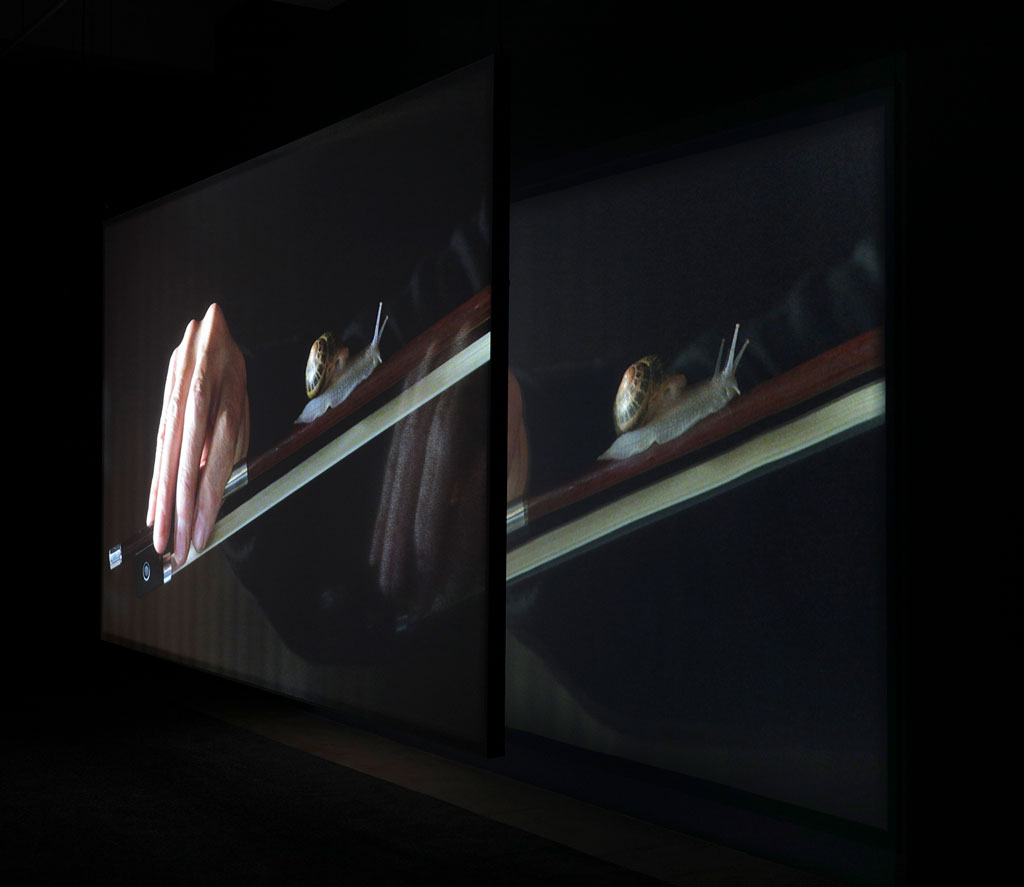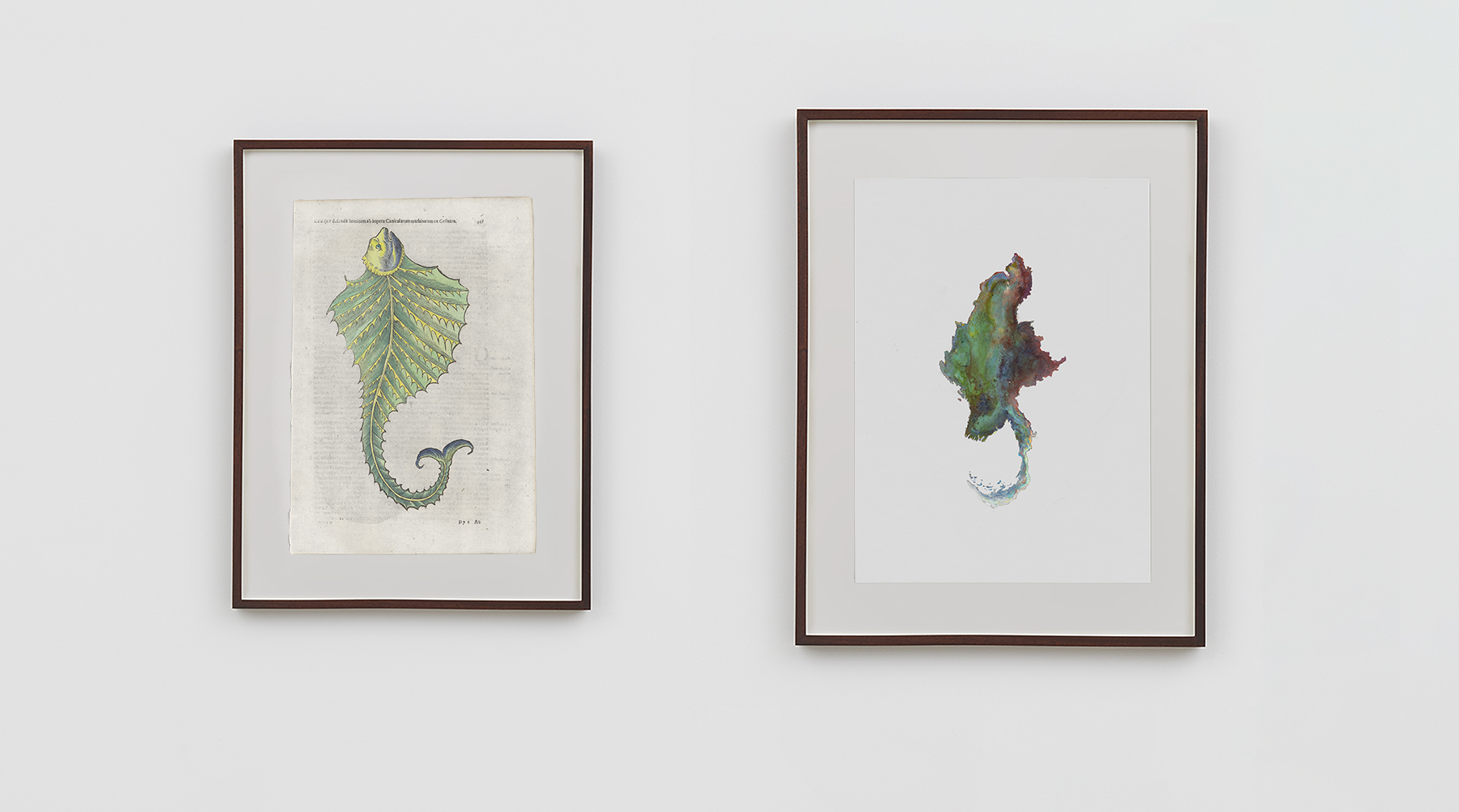ART-PRESENTATION: Anri Sala-Le Temps Coudé
 Anri Sala’s works of film, sculpture and installation create poetic analogies that reflect on life and culture from different frames of experience. Past works have traversed European contexts, from his hometown, Tirana, to Germany and France where he has spent much of his adult life. His films balance allegorical and symbolic subjects, presented as simple narratives that often creatively pair image with sound, and explore the choreographic potential of musical instruments and their performers.
Anri Sala’s works of film, sculpture and installation create poetic analogies that reflect on life and culture from different frames of experience. Past works have traversed European contexts, from his hometown, Tirana, to Germany and France where he has spent much of his adult life. His films balance allegorical and symbolic subjects, presented as simple narratives that often creatively pair image with sound, and explore the choreographic potential of musical instruments and their performers.
By Efi Michalarou
Photo: Mudam Luxembourg Archive
Anri Sala presents his first monographic exhibition, “Le Temps coudé”, in Luxembourg in an ambitious installation at Mudam Luxembourg. The artist presents major installations, film works and drawings created in the past five years. The title “Le Temps coudé”, borrows from the French phrase ‘faire un coude’ and refers to warps or bends in our experience of what we see, hear and know. Far from being a mere companion to the image, sound plays a major role in Anri Sala’s work: it reveals space and is embraced for its ability to “open up” the present time. Associated with animated sculptures, drawings, photographs or sound installations, his films depict a surprisingly varied musical spectrum: the free jazz of saxophonist Jemeel Moondoc in “Long Sorrow” (2005) rubs shoulders with Schönberg’s music in “The Present Moment” (2014), the famous punk song “Should I stay or should I go?” in “The Clash” (2010) or Stravinsky’s Elegy in “If and Only If” (2018). In each of his works, the spectator’s subjective and sensory experience resonates with a collective, social and historical dimension. “Long Sorrow” is a requiem for the end of dreams. Its protagonist is the famous free jazz saxophonist Jemeel Moondoc, who appears in a surreal scenario, hanging in mid-air outside the top-floor window of a building on the outskirts of Berlin, a classic architectural example of 1960s housing developments. Neighborhood residents have rebaptized this building “the long sorrow”, a nickname that becomes the title of Anri Sala’s film. In it, the African-American musician’s improvisations build a cathedral of sound, imbued with a sense of mounting tension. Part social documentary and part metaphor for artistic creation, “Long Sorrow” closes with the image of an airplane that seems to crash into the building. “The Present Moment” re-performs and dissects a late Romantic composition by Arnold Schoenberg in a 19-channel sound system, and a single channel video projection. “Transfigured Night,” a sextet composed as chamber music, was composed for an intimate setting. Taken out of this context, re-presented in the large fascist architecture of the Haus der Kunst, there is an immediate tension at play, bordering on negation. In a panel discussion, Sala describes that the chamber music is supposed to be conversational, it is without a conductor. “The Clash”, depicts three individuals circling the notorious but now defunct punk music venue in Bordeaux. One carries a music box while the other two stand next to a barrel organ, both instruments playing variations on the Clash’s early-1980s classic “Should I Stay or Should I Go”. “If and Only If” (2018), is based on Igor Stravinsky’s Elegy for Solo Viola, also charts the course of a journey, which too becomes an integral part of its musical composition. In this case, a snail gradually travels the full length of a viola bow, innocuously moving across it, but minutely disrupting the exquisite balance on which the maestro’s playing instinctively relies. This traversal emulates a concealed dialogue between two voices that is subtly implied at the heart of the composition. The work is performed as a monologue, but it is in an allusion to dialogue, in the form of the sound of two strings, that Sala renders Stravinsky’s Elegy as a tactile interaction between the renowned violist Gérard Caussé and a garden snail. The snail, its location and pace imposing itself on the performance, causes the viola player to simultaneously make adjustments for and thus compose with this evolving situation. The standard duration of Elegy is thus subverted through the interaction between the musician and the snail, revised to almost double its usual time.
Info: Curators: Suzanne Cotter, Assistant Curator: Sarah Beaumont, Mudam Luxembourg-Musée d’Art Moderne Grand-Duc Jean, 3 Park Dräi Eechelen, Luxembourg-Kirchberg, Duration: 11/10/19-5/1/20, Days & Hours: Mon & Thu-Sun 10:00-18:00, Wed 10:00-21:00, www.mudam.com



